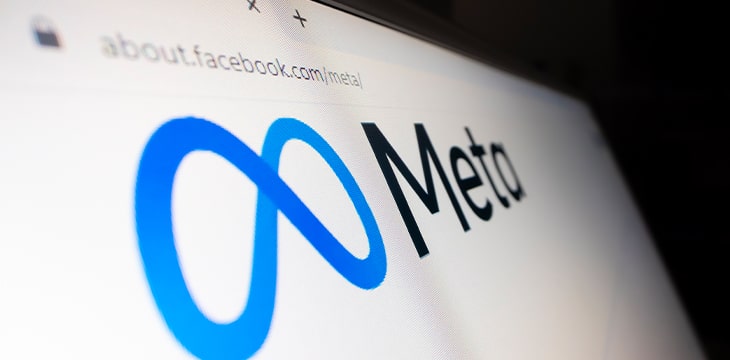|
Getting your Trinity Audio player ready...
|
Jack Dorsey’s Crypto Open Patent Alliance (COPA) announced this week that Mark Zuckerberg’s Meta would be joining its board.
Max Sills, general manager of COPA and IP counsel at Dorsey’s Block (formerly Square), said:
“Meta’s leadership in COPA underlines the importance of protecting open source technologies. Companies large and small can encourage innovation by collaborating on fundamental infrastructure. This is one step further to advancing COPA’s mission, which is to remove legal obstacles so cryptocurrency can become the backbone for transferring value anywhere in the world.”
But despite how it describes itself, COPA is not an agnostic patent alliance. In the 16 or so months since its founding, COPA’s sole activity has been to challenge Dr. Craig Wright’s copyright in the Bitcoin white paper—a copyright which continues to be successfully tested in the courts. To that end, COPA has assembled an exclusive cohort of corporations and wealthy businesspeople who are ideologically and existentially opposed to Bitcoin’s intended function as peer-to-peer electronic cash, and by extension are opposed to Dr. Wright’s Bitcoin in favor of BTC.
The addition to COPA of one of this century’s most notorious villains in Mark Zuckerberg and Meta, therefore, deserves consideration. Why would Meta choose now to join COPA’s campaign against Dr. Wright?
COPA was created to fight Dr. Craig Wright
First, Jack Dorsey’s Block (formerly known as Square) founded the Crypto Open Patent Alliance (COPA) in 2020. It’s stated purpose is to create a “non-profit community of like-minded people and companies formed to encourage the adoption and advancement of cryptocurrency technologies and remove patents as a barrier to growth and innovation”.
In reality, the months since COPA’s founding have revealed that it isn’t concerned about patents stifling digital asset innovation at all—rather, it has been used only as a vehicle to challenge Dr. Craig Wright and his vision for Bitcoin.
For instance, up until Monday’s announcement that Meta had joined the COPA board, the last post on the Alliance’s website was the February 2020 announcement that it would host the white paper, ostensibly in response to the news that Dr. Wright had sent out copyright infringement notices to five specific entities that were hosting the file on their website.
This can also be seen in COPA’s founders: Dorsey and Square are outspoken advocates of BTC, with Square regularly promoting its BTC acquisitions and Dorsey openly advocating for BTC as the “best native currency of the internet.”
Further, after its formation, the Alliance quickly added a rogue’s gallery of BTC advocates and others similarly aligned against Dr. Wright’s vision of Bitcoin, including Coinbase (NASDAQ: COIN) as a founding member, Kraken, MicroStrategy (NASDAQ: MSTR) and Blockstream.
Most importantly, despite holding itself out as a “crypto” agnostic patent alliance, to date the only thing that COPA has ever done is begin legal proceedings against Dr. Wright in the U.K., challenging his copyright in the Bitcoin white paper.
At the same time, Jack Dorsey has doubled down on his personal opposition to Dr. Wright: he recently formed a ‘legal defense fund’ to support the BTC centralize protocol developers currently being sued by Dr. Wright over the fiduciary duties they owe to all users of the blockchain they exert control over.
Meta joining COPA’s board should be viewed in the light of all of this. Meta is not merely joining an ‘open’ patent alliance—they are declaring their public support of the war against Dr. Wright and Bitcoin.
Why Meta, why now?
Meta’s choice to align with Jack Dorsey’s campaign against Dr. Wright makes sense in the same way Blockstream and Coinbase’s did. Bitcoin as originally described in the white paper—and currently using the exchange trading ticker of BSV—is scalable to the point where it truly can be the immutable data ledger of the world, and as a payment system can be actually used to transact by anyone in the world. This is quite apart from the likes of BTC, the block limit of which ensures it will never achieve the scale needed to serve as electronic cash for everyone, regardless of wealth.
Bitcoin isn't for people that live on less than $2 a day. You're imagining someone with your knowledge & background that is poor. @Falkvinge
— Samson Mow (@Excellion) October 6, 2016
In addition, the combination of data and money embodied by Bitcoin threatens to cause a seismic shift in how data is owned and monetized. Just as trustless payments are an existential threat to intermediaries like Mastercard, for Meta, a company entirely in the business of collecting and selling the data of its users, there could be no greater threat.
On this, the difference between Dr. Wright and Zuckerberg is fundamental and irreconcilable. In that way, Zuckerberg is in the same boat as many of Dr. Wright’s opponents to date. Just as his current legal battles are fundamentally about reigning in those entities that are holdovers from a far less legitimate era of the digital asset ecosystem, so too does Zuckerberg come from a time where the law was still catching up to new tech applications. After all, one Sean Parker is an inseparable part of the story of Facebook (and now Meta)—Parker is best known for running the peer-to-peer file sharing service Napster until the U.S. Court of Appeals determined that both Napster and its users were culpable for the rampant copyright infringement taking place on their platform.
From COPA’s perspective, Meta brings a large portfolio of patents to the pool being collecting by COPA. Almost all of patents being thrown into the pool are worthless to commercialize, so easy to discard. Members of COPA agree to offer some of their digital asset-related patents to a shared patent library, and then commit not to enforce these patents other than in defense of themselves or the rest of the COPA community. In other words, COPA is portraying themselves as a ‘defensive alliance’ insofar as the object being defended aligns with the wishes of COPA’s very narrow and highly politicised membership. The results of this are plain to see: COPA hasn’t defended anything, instead prosecuting a legal battle against Dr. Wright unrelated (at least, not directly related) to patents or patent enforcement.
The timing of Meta joining COPA is also notable. As it turns out, Meta is currently in the process of abandoning its much-talked about Diem project. Diem, formerly known as Libra, was supposed to be Facebook’s stablecoin and was originally being developed notable incumbent payment companies such as Mastercard.
The last we heard of Diem, it had withdrawn its application for a payment system license with the Swiss Financial Market Supervisory Authority and was moving to the U.S., presumably in the hopes that regulators in that country would be more hospitable to the project.
That ended up not being the case, and on Monday—the same day COPA announced that Meta would be joining its board—Diem’s CEO Stuart Levey released a statement announcing the sale of Diem’s assets to Silvergate Capital, confirming the final nail in the coffin for Meta’s stablecoin. Ultimately, Meta’s long-promised stablecoin simply failed to get past regulators.
In other words, as regulators were rejecting Zuckerberg’s foray into digital assets, adoption of BSV by enterprise and government was accelerating—and all the while Dr. Wright continued to stack up victories in courts around the world.
Ironically, Meta’s presence in COPA is a clear undermining of the illusion that the so-called Alliance is about anything but waging war on the ideas of one individual. When you have the likes of Mark Zuckerberg, Meta, Jack Dorsey and Twitter assembled opposite one man quietly enforcing his rights in the courts, it should be fairly obvious which side represents truth and honesty—and it’s clearly not the side that just brought Mark Zuckerberg and Meta into the fold.
Follow CoinGeek’s Crypto Crime Cartel series, which delves into the stream of groups—a from BitMEX to Binance, Bitcoin.com, Blockstream, ShapeShift, Coinbase, Ripple, Ethereum,
FTX and Tether—who have co-opted the digital asset revolution and turned the industry into a minefield for naïve (and even experienced) players in the market.

 02-17-2026
02-17-2026 




